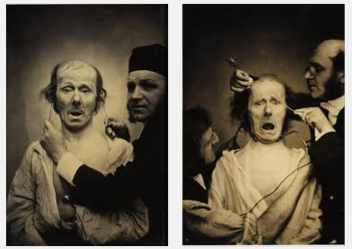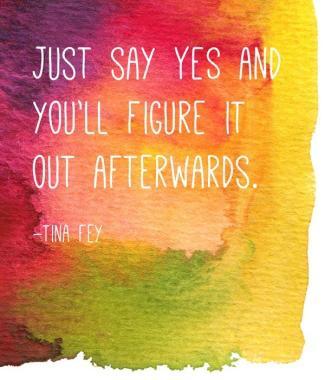
I love improv comedy because of its authenticity. You might ask me, how can a dramatic form where the performers are literally making everything up as they go possibly be authentic? To that I would say, “Yes, and… Fuck, I really should’ve thought that one out more.”
I’ve always been a fan of comedy, but five years ago, if you had asked me to go to an improv show, I would have passed, saying (or at least thinking), “It may be a great way for comedians to hone their skills, to build those 10,000 hours, but I want to watch their best, painstakingly edited final product, not their practice session.”
Last night, I was walking down a crowded street, earbuds in, listening to Comedy Bang Bang. My face was so lit up by the comedy, that it drew multiple strangers to me who asked why I was so happy and try to absorb some of my overflowing joy.
Because that’s the thing—emotions are contagious. This is why multi-cam sitcoms have laugh tracks. But real emotions are also hard to fake, and this is why canned, exaggerated laugh tracks feel so jarring.
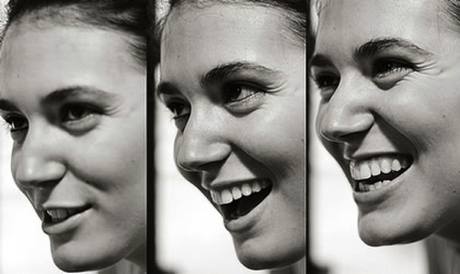
Can you spot the genuine smile? Your unconscious can.
Expressing emotions is one of the most honest things we do. It’s difficult to fake a genuine smile. Sure we can pull up the corners of our mouth into a “say cheese” grin, but like a Japanese emoticon a true smile comes from the scrunching of the eyes. ^^;
When we really smile and form a so-called Duchenne smile[1], we smile with our mouth but also contract the muscle that surrounds the eye, the orbicularis oculi, which squints the eye and often produces crows-feet (why they call them laughter lines). The orbicularis oculi is partly under conscious control and partly under the control of the autonomic nervous system, the unconscious system, which regulates processes like your heartbeat, blood pressure, and intestinal flow.
It’s popular myth says it’s impossible to fake a Duchenne smile, but a recent study shows that using a photo of a Duchenne smiles as an example, a subset of participants can at least fake a passible Duchenne smile, though it’s unclear exactly how good these imitations really are. I do wonder if talented actors and models have more control of these muscles either directly and consciously, or through some sort of cerebral Rube Goldberg machine of inner thought.
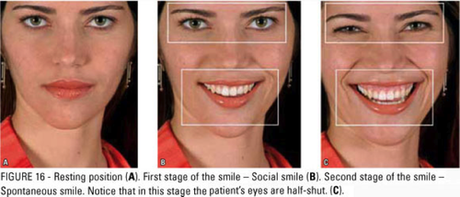
Similarly, it’s equally difficult to fake a laugh or to add that beautiful giddy tinge to words that you can hear when someone speaks after they laugh. And that’s the thing about an improv show like Comedy Bang Bang: you can hear that people are having fun. You can hear their stifled laughs, their genuine surprise at what’s just been said. At moments it feels like you’re back at a sleepover at that precise moment around 3AM when everything becomes funny for no apparent reason.
Can you tell which of these clips is the real laugh:


As an aside, WikiHow, AKA reptilians’ and sociopath’s favorite site for learning how to fake being a human, contains this useful 15-fucking-step illustrated guide to faking a laugh: “Fake laughing is a useful social skill that you can employ… By its very nature, laughter is irregular, so the measured tones of your fake laughter can easily be spotted. Add variety to your laughter by starting with low tones and ending with a higher pitch, or vice versa… Human brains distinguish between real and faked laughter by the breath inserted between your chuckles and chortles.”
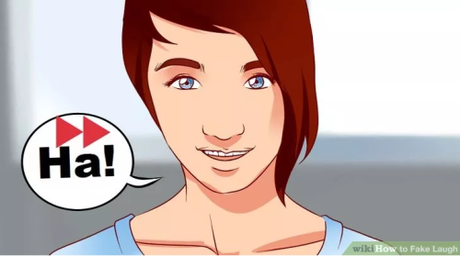
Of course, genuine emotion isn’t unique to improve comedy. Some of my favorite SNL memories are of comedians breaking and cracking a smirk, and one of my favorite Beatles moments is the verse in Maxwell’s Silver Hammer where Paul laughs in the middle of the take. Maybe it’s surprising it took me so long to come around to improve, but now a show like Comedy Bang Bang or Harmontown can make my day.
True emotions are also sometimes captured in more unusual ways. For example the Mumblecore show Togetherness (season 1 is phenomenal) would sometimes edit in shots of actors’ genuine expressions taken from when the cameras rolled between scenes.
Writing this blog post has made me wonder why we haven’t evolved the ability to fake genuine emotion. Why can’t we make ourselves cry on command, why can’t we fake a genuine smile, make our faces red with anger—why is acting so hard for most of us? Is their some sort of advantage to our inability to fake our emotions? Is the value of being trusted after a genuine smile greater than the value of being able to fake one?
Or have our brains just not evolved to that point where our conscious mind has gained control over our evolutionary ancient, hard-wired emotional responses. Are we all stuck in evolution at the point where we are the emotional equivalents of characters in the world of the invention of lying:
I’m not a comedian, but like many comedians, I do this because of my insatiable need for the approval of strangers. So if you liked this please let me know or share this article with the links below, or follow me to see more contents like this.
Footnotes/Asides
[1] The Duchenne smile is named after this crazy dude, Duchenne de Boulogne who shocked people’s facial muscles into different emotions.
